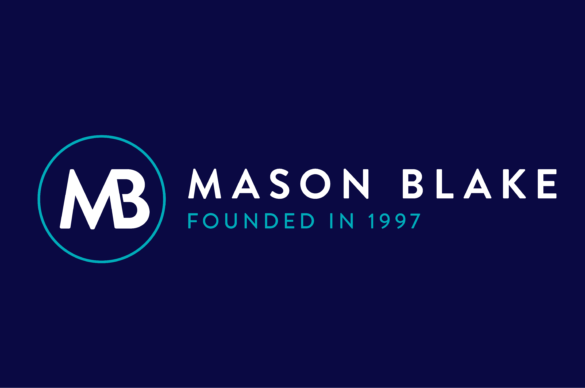Rachael Brooks / 22 January
City jobs: emerging 2019 trends
The New Year has opened with apparently alarming headlines about redundancies at Blackrock. Do the job cuts signal a broader trend? Read on to find out.
2019: harder to predict
Unsurprisingly perhaps, the state of hiring and employment for the coming year looks much less clear to us than 2018. We expected a buoyant, high-turnover market in 2018 and that is what we got. Politics of Brexit and trade wars, less certain economic conditions and volatility in asset markets all cloud the picture a bit going forward.
Yet we have identified some key trends that might help guide both hiring managers and jobseekers in the year ahead. These include: a drive to specialisation, demand for languages, the ongoing rise of passives/ETFs, industry consolidation and several big US firms building London capacity.
After the frenetic pace of 2018, which featured extremely short hiring cycles with lots of ‘gazumping’ and counter-offers, 2019 may return to a steadier and more deliberate pace and process. Amid the uncertainty, hiring firms appear less likely to pull the trigger quickly on making offers. Only time will tell if this just reflects January doldrums or a fundamental change in the hiring regime.
More churn, less growth?
News that Blackrock will slashed 500 jobs sent shock waves through the City jobs market. But looking into the detail, it turns out they’re not actually reducing headcount. Rather, it’s more of a strategic restructure for a company that is still comfortably profitable. In fact, overall headcount will be about 4% up on last year.
Negative headlines aside, this overall headcount growth is part of a wider trend we’re seeing, which is foreign companies, especially American ones, building capacity here in London, including Blackrock, Vanguard and T. Rowe Price among others. Some European firms are also quietly opening representative offices and building investment and distribution capacity in the capital.
No doubt certain fund management segments are under pressure, while others are booming. This requires some strategic shuffle, of the type Blackrock appears to be undergoing, which is having knock-on effects across the jobs market. Booming areas include passive and ‘smart passive’ strategies https://www.masonblake.com/what-does-the-rise-of-passive-mean-for-the-job-market-part-i/, alternatives and ESG capabilities https://www.masonblake.com/the-esg-dilemma/. Some fund houses, including Blackrock, are building IT capacity and shuffling around distribution resource from stagnant to growing market segments.
While uncertain market and political conditions may weigh on growth overall, there is still plenty of opportunity for candidates and some key considerations for recruitment specialists and hiring managers. Both staffing and hiring professionals will need to keep on their toes in 2019, collaborating closely with recruitment specialists in a more uncertain environment.
M&A consolidation carousel
Structural industry pressures from falling fees and investor product preference changes continue to stimulate consolidation across the industry. This is resulting in knock-on churn in the jobs market. We saw several big mergers and acquisitions in 2017-18, from LGIM acquiring ETF capability with its takeover of Canvas, to the shock merger of Standard Life Investments and Aberdeen Asset Management. No doubt, this consolidation trend will continue through 2019, especially if investment markets remain unsettled.
Structural industry changes such as these have the potential so spark rounds of hiring and change across the jobs market. Usually the newly merged entity will shed headcount in some areas while adding headcount in others. This can offer opportunities and risks for staff, jobseekers and hiring managers alike, as new talent comes on the market and interesting new roles are created.
Race to digital
Demand for digital marketing talent continues to grow and accelerate. Over the last twelve months we’ve seen more open digital investment marketing roles than in any previous year. In the scramble for talent in a tight market for this specialty, many hiring managers this year are starting to come around to the idea of hiring digital expertise from outside the industry.
They are realising that in many digital areas, such as email or web automation, candidates do not require investment knowledge or experience to be effective in the role. This is certainly the direction we are urging our clients to take, as new blood from outside the industry can spawn innovation in an area that the industry has previously lacked.
The future of investment marketing is digital. We have already seen one of the largest UK based fund management marketing teams promote their head of digital to head of marketing, followed by a subsequent integration of digital and broader marketing into a single team. This trend suggests that candidates need to continue to seek opportunities to gain experience or learning/training in the digital sphere to maintain and bolster their hireability.
The rise of ‘specialism’
Continuing a trend we saw in 2018, hiring firms are looking for very specific, specialist skillsets with direct experience of the requirements of a role, many in niche areas, perhaps signalling a broader move away from hiring investment generalists. These include specialist asset classes such as illiquid alternatives, specialist regional expertise with attendant language requirements.
The drive to specialisation also spills over into product teams, where product specialists with real asset, infrastructure, factor investing and ESG knowledge and experience are in high demand. This contrasts with 2018 which began with demand in fixed income specialists before moving on to equity and then multi-asset specialists.
We’re also seeing several hiring firms beginning to build out specialist market intelligence capacity. This appears to be an attempt to get ahead of a fast-changing investment product marketplace, with market intelligence teams dedicating to analysing competitors, price points and product placement.
In need of a Babel Fish
Candidates with a language, especially German or French, are in high demand across the industry. This trend stretches from the investment desks to writers, and relationship managers to client service execs. Most of the roles we are seeing are in London and are beginning to command a premium. There appears to be a dearth of candidates with the required skills, while some Continentals may be more reluctant to locate in London as Brexit looms. This trend will be worth watching as 29 March approaches.
Shakeups in ops
As more and more investment firms take up an outsource model for low-level processing, basic middle and back office roles are moving to outsource centres in Dublin, India and even Luxembourg. This means an actual rise in demand for mid-level oversight positions and more senior strategic responsibility roles.
On a skills level, this means we’re seeing an increase in the skills demanded for back off staff, to include Excel expertise (up to and including VBA skills), alongside the ability to query processes and add value to outsourced operations. Middle and back office hiring managers are now seeking candidates who can sense and fix problems, while seeking to add ever-increasing efficiency, accuracy and cost savings to the operations function.
Performance teams are also experiencing a bit of a structural shake up, with increased demand. Firms are building out their performance measurement, risk and attribution teams across the board, while also seeking candidates with specialist expertise in fixed income, LDI and multi-asset areas. Performance measurement candidates in 2019 will need to demonstrate knowledge and expertise in these areas, alongside the ability to learn quickly. Due to a tightening market in this area, hiring firms may need to consider a hire-and-train model for certain performance measurement roles.
What trends are you seeing?
Overall, we believe London’s legendary resilience and pragmatism will see us through the coming year. Do you agree with our observations? What trends are you seeing that we may have missed?
Email us your thoughts or for more information contact Kelly.Liddle@masonblake.com

